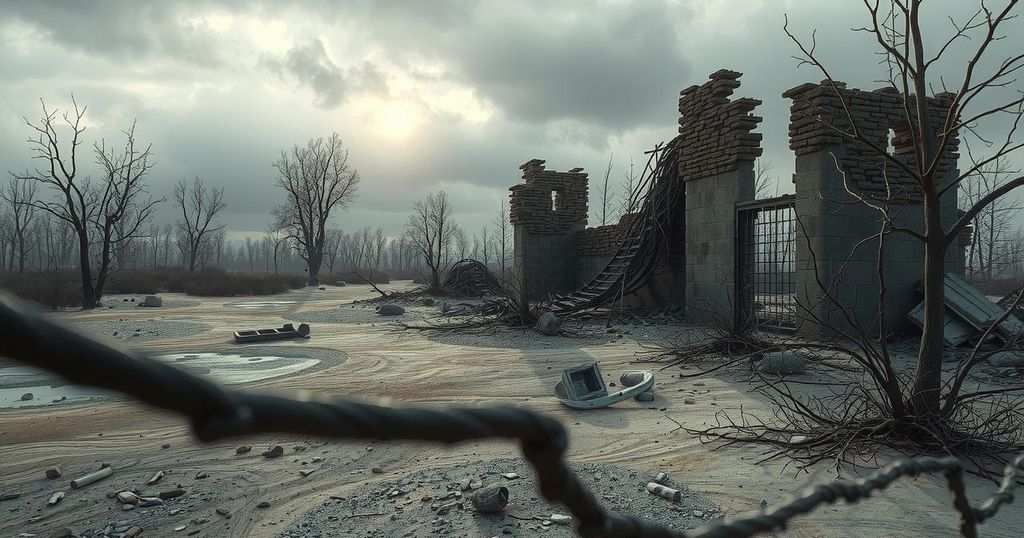Global news
AFRICA, AMERICA, ASIA, BIDEN, CIVIL WAR, HUMANITARIAN AID, HUMANITARIAN CRISIS, KHARTOUM, MUSA, NICHOLAS KRISTOF, NORTH AMERICA, RAPID SUPPORT, RAPID SUPPORT FORCES, REFUGEE CRISIS, REFUGEES, SOUTH SUDAN, SUDAN, SUDANESE ARMY, TRUMP, UNICEF, UNITED ARAB EMIRATES, UNITED STATES
Leila Ramsay
0 Comments
America’s Role in the Escalating Humanitarian Crisis in Sudan
The humanitarian crisis in Sudan is severe, with widespread famine and violence resulting in significant death and displacement. This situation has worsened due to cuts in U.S. humanitarian aid, leading to increased suffering. Numerous personal accounts reflect the dire conditions faced by refugees who escape violence and starvation. There is an urgent need to re-engage and assist in alleviating this humanitarian disaster.
The humanitarian crisis in Sudan is arguably the most severe, characterized by famine, civil war, and widespread atrocities. With estimates of tens of thousands killed and over 11 million displaced, the situation has prompted the United States to formally label it as genocide. Alarmingly, the ongoing conflict is exacerbated by the U.S. government’s reduction in humanitarian assistance.
Amidst this turmoil, personal accounts shed light on the devastating conditions faced by individuals. Musa Ali, a former interior designer, narrates his harrowing journey after losing both legs to a bombing and witnessing starvation among neighbors. His family’s support from distant relatives was crucial for survival, prompting their decision to flee to South Sudan amidst extreme danger, robbed and witnessing deaths along the way.
Other refugees, such as teachers Yassin Yakob and Sabah Mohammed, recount their escape from Khartoum, highlighting the dire consequences of vehicle breakdowns on their journey which resulted in starvation. Simplistically put, those who cannot access food perish. The closure of American-supported soup kitchens due to funding cuts has left countless hungry, with alarming incidents of child starvation reported by humanitarian workers.
Manal Adam’s tale represents the collective suffering of many, having survived multiple atrocities herself, as she sought refuge with her children while leaving loved ones behind. Her trauma caused by rape depicts a tragic cycle of violence, exacerbating the ongoing crisis in Sudan through generational trauma of warfare.
Reports indicate that camps such as Zamzam in Darfur face siege by the Rapid Support Forces, containing half a million people devoid of medical assistance, raising urgent alarms among U.N. officials. Despite perceptions of inevitability surrounding Sudan’s plight, there is an opportunity for global intervention to alleviate suffering that remains unexploited. Comparatively, past U.S. actions were more engaged, highlighting the alarming backward step in humanitarian efforts today, as current U.S. policies contribute significantly to the worsening crisis. It is essential that actions and advocacy resume to confront these escalating atrocities and provide necessary aid to those affected.
In conclusion, the humanitarian crisis in Sudan illustrates a disturbing reality exacerbated by cuts in U.S. aid and silence regarding the involvement of external actors. Personal stories of suffering underscore the urgency of revitalizing humanitarian efforts to prevent needless loss of life. History shows the potential of concerted action against injustices. A renewed commitment to provide and advocate for aid is essential in addressing the complex needs of those affected by this ongoing crisis.
Original Source: www.nytimes.com




Post Comment